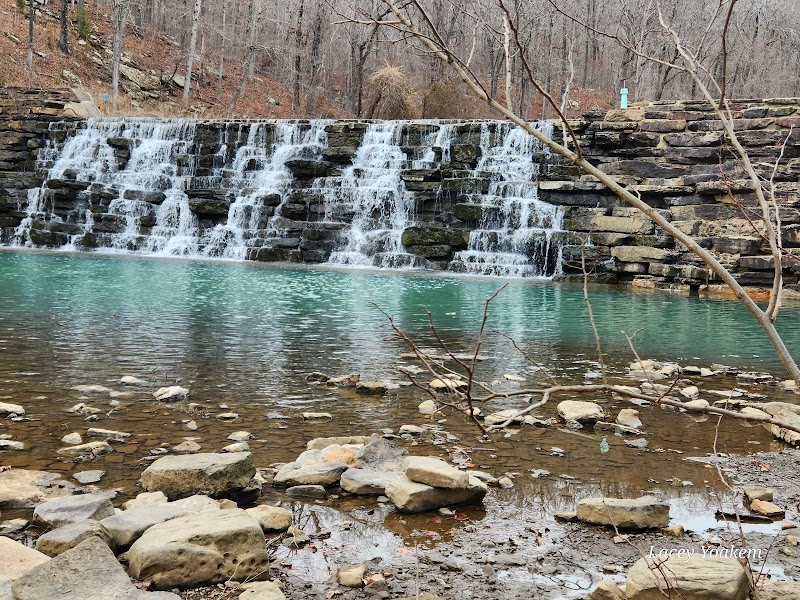
Ozark Folk Festival: A Hands-On Celebration in Kingston, Arkansas
The Ozark Folk Festival in Kingston, Arkansas, offers a lively and hands-on experience celebrating Ozark traditions through music, crafts, and local flavors. Whether you’re eager to try your hand at folk skills or simply immerse yourself in authentic culture, this festival delivers both excitement and insight.
Wear Comfortable Footwear
Festival grounds and parking areas require substantial walking on uneven terrain—sturdy, broken-in shoes will keep your feet happy throughout the day.
Bring a Refillable Water Bottle
October is typically cool, but staying hydrated is essential, especially if you're sampling foods or participating in workshops outside.
Plan for Variable Weather
Early autumn weather can shift from warm sunshine to sudden chills; layered clothing allows you to adjust without hassle.
Use Cash for Vendors
Many craft booths and food vendors prefer cash payments, so carry enough small bills to avoid missing out on unique purchases.
Ozark Folk Festival: A Hands-On Celebration in Kingston, Arkansas
Each October, Kingston, Arkansas, becomes a stage for the Ozark Folk Festival, a practical celebration of Ozark traditions that invites visitors into a lively world of music, crafts, and regional flavors. Far from a passive experience, the festival challenges you to engage directly with heritage — whether you're weaving a basket, learning a fiddle tune, or savoring locally made honey. The festival’s setting in Kingston’s heart draws you into the rhythm of an Ozark autumn where crisp air carries the scent of wood smoke and the laughter of festivalgoers.
The festival stretches over several days, offering tents and workshops that showcase hands-on demonstrations alongside a robust lineup of live music from old-time and bluegrass bands. It’s a chance to see, hear, and try skills finely honed by generations. The surrounding Ozarks cradle Kingston with rolling hills and forested trails, a reminder that the festival’s cultural roots grow from the very soil beneath your feet.
Planning your visit demands some logistics: parking areas are clearly marked but prepare for some walking, so comfortable shoes are a must. The festival’s pace is active but not rushed, letting you explore each craft booth or music stage at your own tempo. Hydration won’t be a major concern as October’s climate is usually cool and dry, but a refillable bottle is always wise, especially if you’ve been sampling the many locally sourced foods available.
For those interested in layering in outdoor adventure, the nearby Ozark National Forest offers hiking routes that mirror the sturdy, no-frills lifestyle celebrated at the festival. Trails like Hawksbill Crag provide sweeping views that contrast with the hands-on intimacy of the festival grounds, offering balance between cultural immersion and nature’s raw challenge.
Attending the Ozark Folk Festival is more than observation; it’s participation in a festival fiercely protective of its traditions yet welcoming to newcomers. Music and craft sessions encourage questions, mistakes, and discovery. Whether you’re a casual visitor soaking it in or an avid folk enthusiast, the festival connects you to a way of living that is both deeply practical and richly vibrant — a reminder that adventure takes many forms, including the joyful mastery of skills passed down through time.
Nearby Trips
All Adventures
Boat Charters
Water Activities
Adventures near Fayetteville, Arkansas
Discover the unique and memorable adventures that make Fayetteville, Arkansas special.
Frequently Asked Questions
Is the Ozark Folk Festival suitable for children and families?
Yes, the festival offers interactive workshops and music performances that cater to all ages, making it a family-friendly event where children can try crafts and learn about Ozark traditions firsthand.
Are there specific parking options for the festival?
Designated parking areas are available near the festival grounds in Kingston; some may require a short walk. Carpooling or arriving early helps ensure easy access.
Can visitors participate in craft workshops without prior experience?
Absolutely. Workshops are designed to welcome beginners and encourage hands-on learning. Festival artists guide participants through each step in a supportive environment.
What kind of local foods can I expect at the festival?
You'll find traditional Ozark fare, including locally sourced honey, preserves, apple butter, artisanal breads, and savory dishes reflecting the region’s rural roots.
Are pets allowed at the festival?
Pets are generally not recommended due to crowds and noise. If you do bring a pet, they must be leashed and under control at all times.
Is there an opportunity to explore nearby hiking trails during the festival?
Yes, the Ozark National Forest lies close to Kingston, offering well-marked hiking trails such as Hawksbill Crag, which provide dramatic vistas and an outdoor complement to the cultural experience.
Recommended Gear
Comfortable Walking Shoes
Durable and supportive shoes are needed to navigate both paved and unpaved areas within festival grounds.
Layered Clothing
Octobers can swing between warm daytime sun and cool evenings. Layering allows quick adaptation to temperature changes.
Refillable Water Bottle
Water stations are available, but bringing your own bottle ensures constant hydration throughout your visit.
Cash in Small Bills
Vendor booths often prefer cash for small purchases, including crafts and food.
Local Insights
Hidden Gems
- "The small historic cemetery behind the festival grounds offers quiet reflection with views of the forested hills."
- "A short walk from the festival leads to a forgotten rock bridge on the Middle Fork White River, a rustic photo spot."
Wildlife
- "Watch for red-tailed hawks circling overhead, and listen for the distinctive call of the barred owl at dusk."
- "Seasonal flocks of wild turkeys patrol the nearby open fields during fall mornings."
History
"Kingston has roots as a crossroads of Ozark culture, where river trade and mountain farming converged. The festival continues its legacy by preserving folk traditions that once defined the community’s economy and social life."
